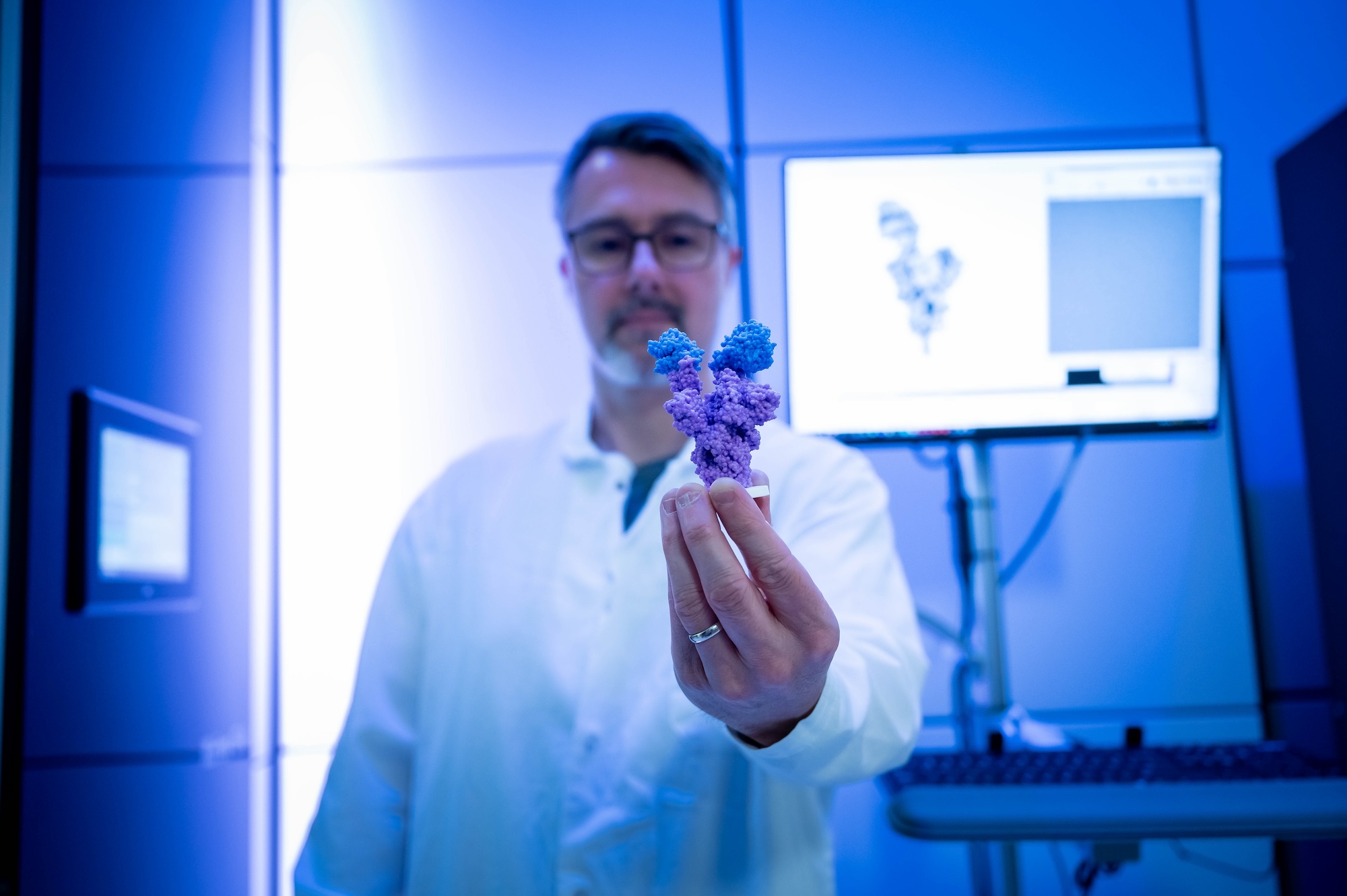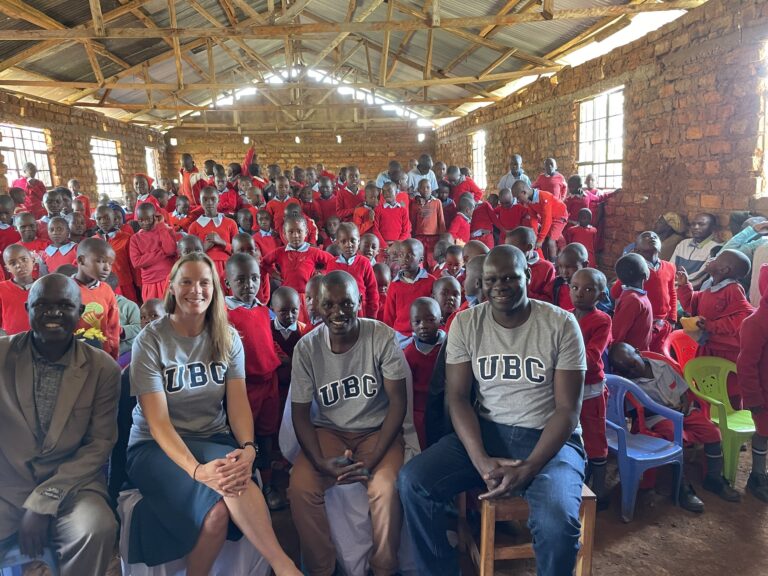Federal investment in Canada’s Immuno-Engineering and Biomanufacturing Hub projects will bolster domestic biotech sector, readiness to respond to future health threats.
When the next pandemic hits, Canada will be better prepared to respond with homegrown vaccines and therapeutics, thanks to a nearly $140-million federal investment in a national research coalition led by the University of British Columbia.
The funding supports four multidisciplinary research projects through Canada’s Immuno-Engineering and Biomanufacturing Hub (CIEBH), a UBC-led alliance of more than 50 academic, industry, not-for-profit and health system partners that have come together to make Canada a leader in advanced immune-based therapeutics like RNA vaccines, antibody treatments and cell therapies.
Collectively, the projects aim to establish an end-to-end drug development pipeline that will enable Canada to mount a rapid 100-day response to emerging pandemic threats and other health challenges.
“We are deeply grateful to the federal government for this important and impactful investment that leverages expertise across CIEBH’s partners to position B.C. and Canada as global leaders in the research, development and manufacturing of next-generation medicines,” said UBC President and Vice-Chancellor, Dr. Benoit-Antoine Bacon. “These projects ensure we are ready to respond to future pandemics and they will also generate the talent and industry collaborations needed to foster and sustain a world-class life sciences sector.”
Randeep Sarai, Member of Parliament for Surrey Centre and Parliamentary Secretary to the Minister of Veterans Affairs and Associate Minister of National Defence, on behalf of the Honourable François-Philippe Champagne, Minister of Innovation, Science and Industry, was at UBC’s Vancouver campus today to announce the new funding through the Canada Biomedical Research Fund (CBRF) and Biosciences Research Infrastructure Fund (BRIF) as part of Canada’s Life Sciences and Biomanufacturing Strategy.
“The nearly $574 million in federal funding announced today, including $140 million for CIEBH, led by UBC, solidifies Canada’s position as a global leader in the biomanufacturing and life sciences sector,” said Sarai. “Investing in Canadian innovation, research, talent, and infrastructure projects ensures that we can continue to keep Canadians safe in times of public health threats, all while boosting our economy.”
The four CIEBH projects are:
- The creation of a new Advanced Therapeutics Manufacturing Facility on UBC’s Vancouver Campus — the first facility of its kind in Western Canada. Equipped with state-of-the-art bioreactors and quality control labs, the 25,000 square foot facility will enable academic researchers and biotech start-ups to develop innovative cell- and gene-based therapies and bring them into clinical trials for Canadians. The project is led by UBC professor Dr. Megan Levings and Dr. Robert Holt, a professor at both Simon Fraser University and UBC.
- AVENGER, an end-to-end drug development platform for RNA vaccines, based at UBC. The AVENGER team will create a library of vaccine formulations that can be custom designed and rapidly deployed against pandemic pathogens and other diseases. The project is led by renowned UBC scientist Dr. Pieter Cullis, who developed the drug delivery technology that underpins COVID-19 mRNA vaccines, as well as UBC professor Dr. Anna Blakney.
- PROGENITER, a development pipeline for antibody therapies, based at UBC. The PROGENITER team will leverage advanced cryo-electron microscopy and AI-enabled drug discovery to build a suite of ready-to-deploy antibody treatments for pathogens with high pandemic potential, such as H5N1 influenza (bird flu). The project is led by UBC professor Dr. Sriram Subramaniam.
- The Bridge Research Consortium (formerly called the Social Sciences and Humanities Consortium), based at Simon Fraser University, brings together an interdisciplinary research team to better understand public perspectives around biomanufacturing and immune-based therapies, while developing strategies to build public trust and promote equitable access to new medicines. The project is led by SFU professor Dr. Kelley Lee and Université Laval adjunct professor Dr. Ève Dubé.
In addition to bolstering Canada’s pandemic resilience, the CIEBH projects will accelerate the development of lifesaving treatments for some of the most pressing health challenges facing Canadians like cancer, diabetes, dementia and more.
“This is just the beginning,” said Dr. Kelleher, UBC’s vice-president, health, and dean of the faculty of medicine. “We are on the cusp of an extraordinary period of scientific and medical advancement. These projects will ensure Canada is at the forefront by driving new discoveries, growing our skilled workforce, generating intellectual property and spin-off companies that power up our economy, and most importantly, translating all that into tangible health solutions for Canadians.”
The four projects draw on CIEBH’s extensive ecosystem of academic, industry and health sector partners to support the translation of scientific discoveries into patient-ready, commercially viable products. The partnerships span B.C.’s rapidly growing life sciences sector — including UBC researchers and spin-off companies that led the development of innovative therapeutics in response to COVID-19 — as well as connections to national and international biotech partners.
Each project incorporates training and talent development components that will support the continued growth Canada’s life-sciences sector and create opportunities for graduate students, postdoctoral fellow and others to develop in-demand skills.
For Dr. Michelle Wong, executive director of CIEBH, the projects demonstrate the power of partnership to transform Canada’s life sciences sector.
“Through national, multi-sector collaborations, CIEBH is bridging connections and fostering ecosystem-wide alignment to ensure Canada is resilient and ready to tackle future health threats,” said Dr. Wong. “We are truly grateful to the federal government and all our CIEBH partners for coming together to realize this vision.”




